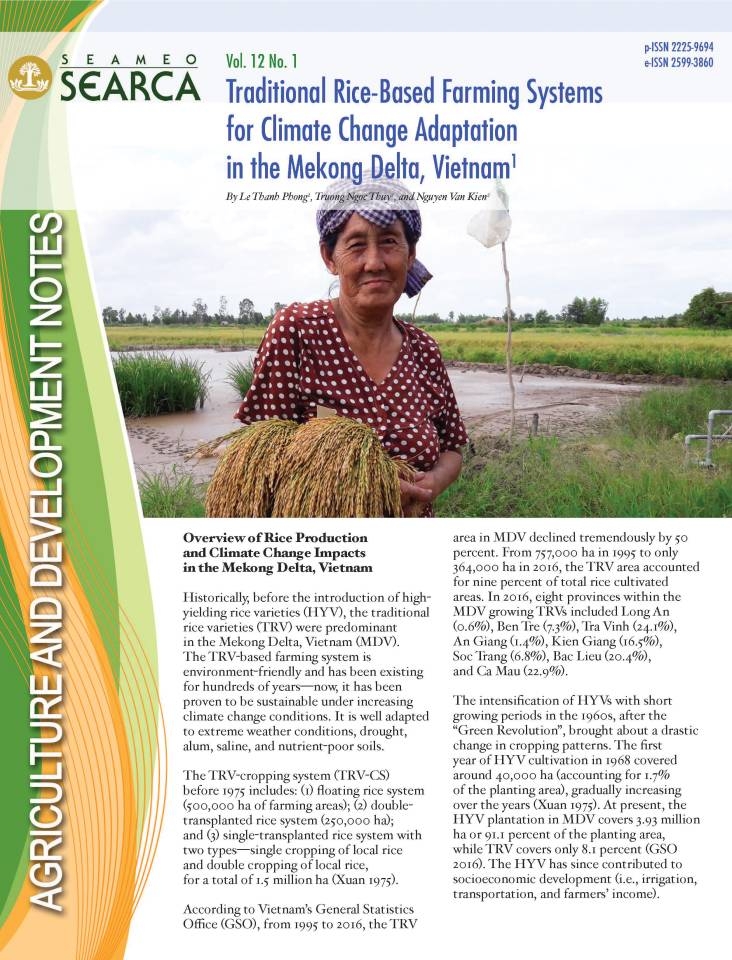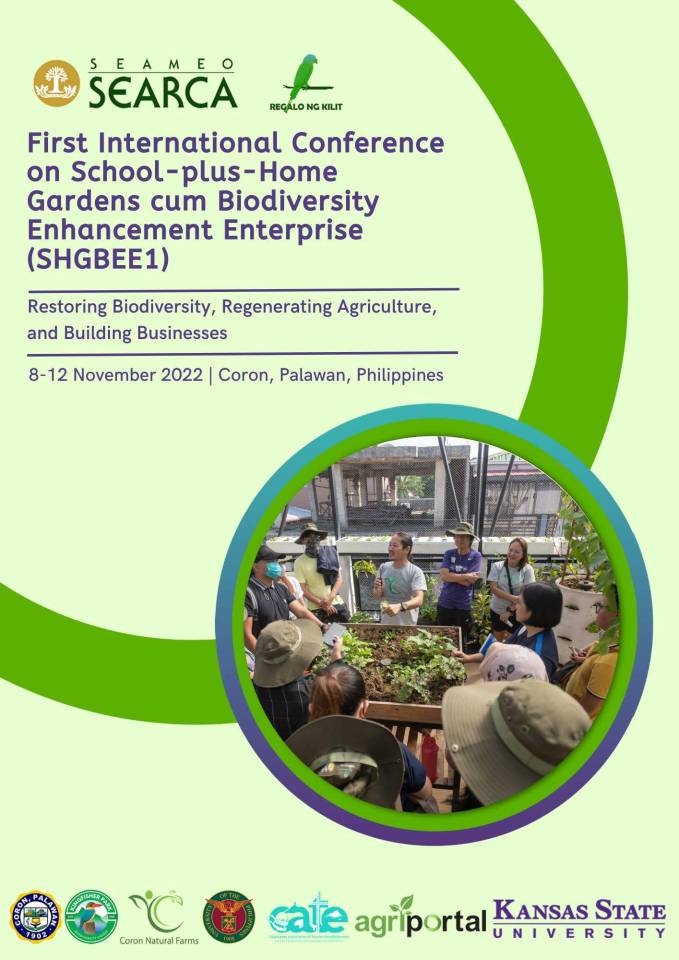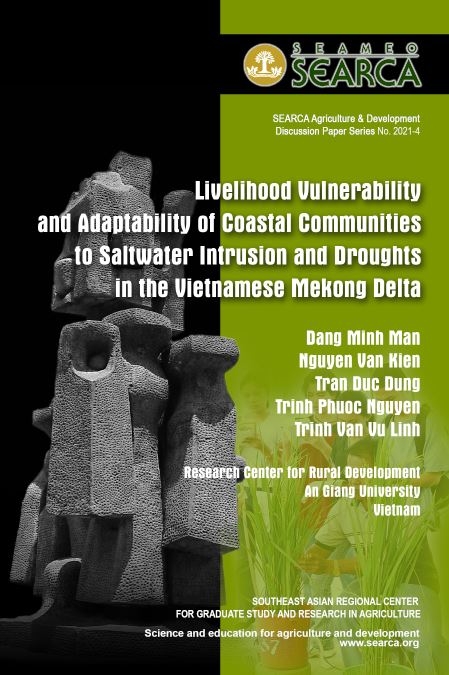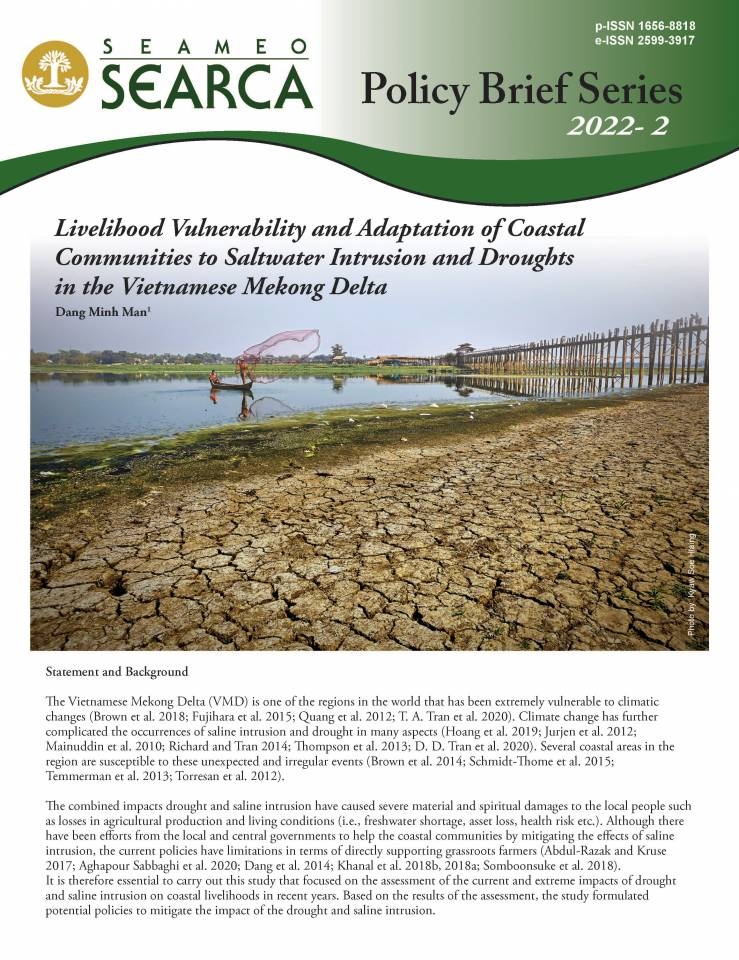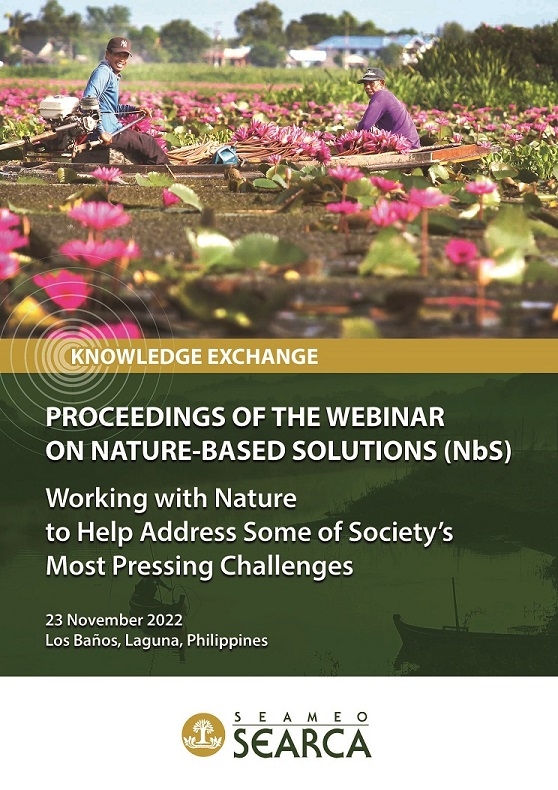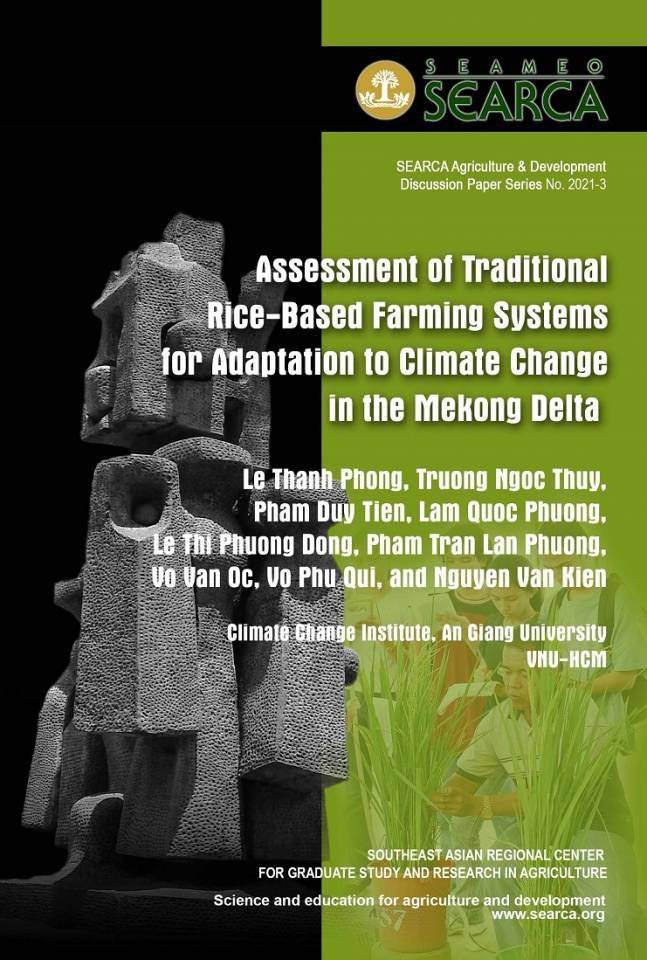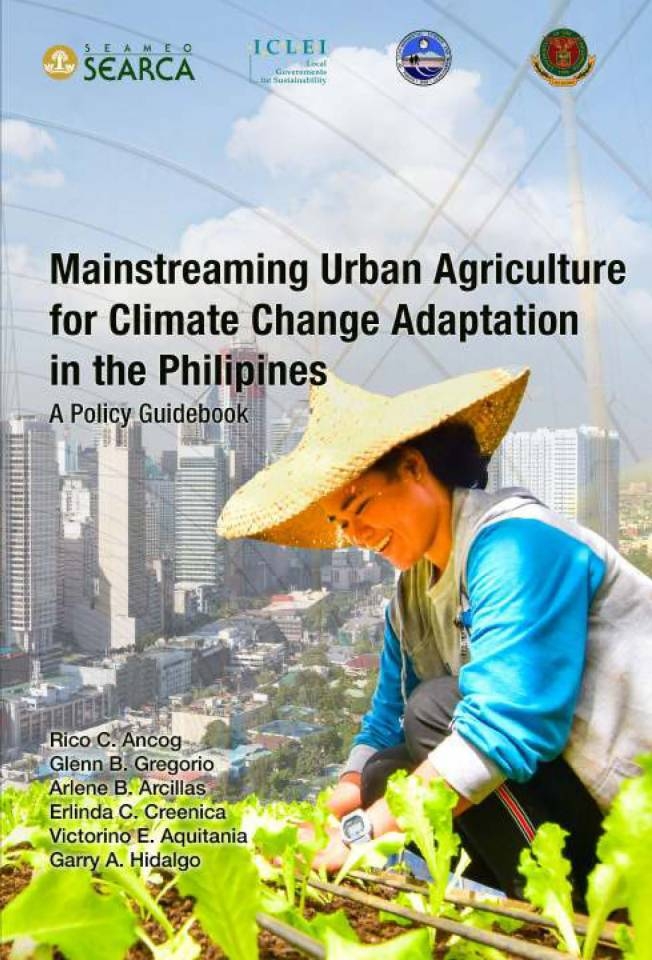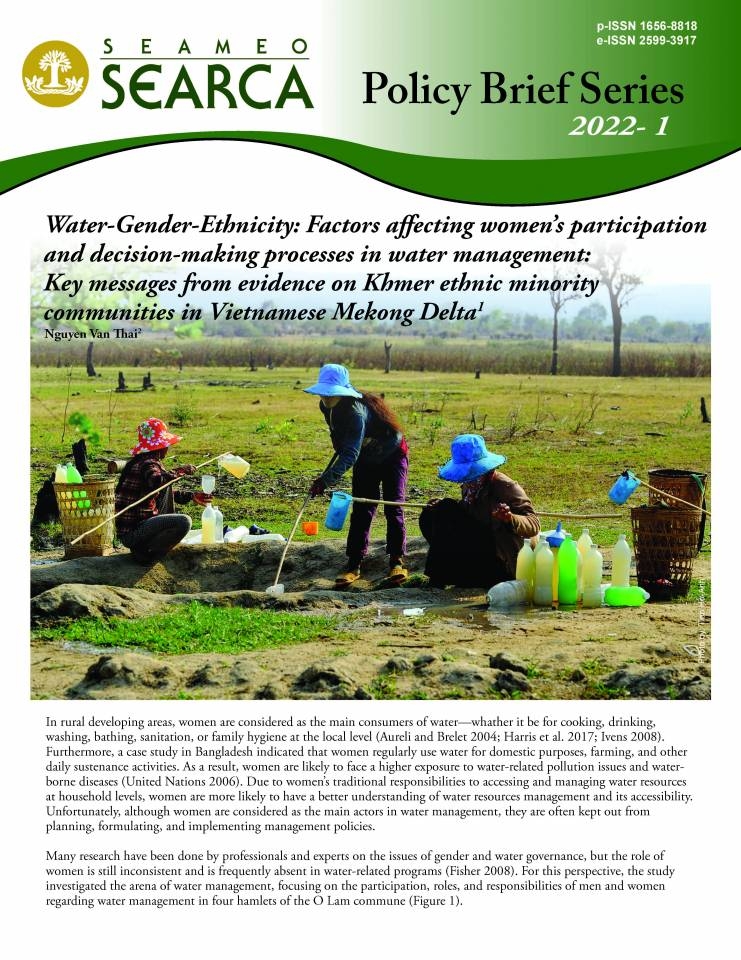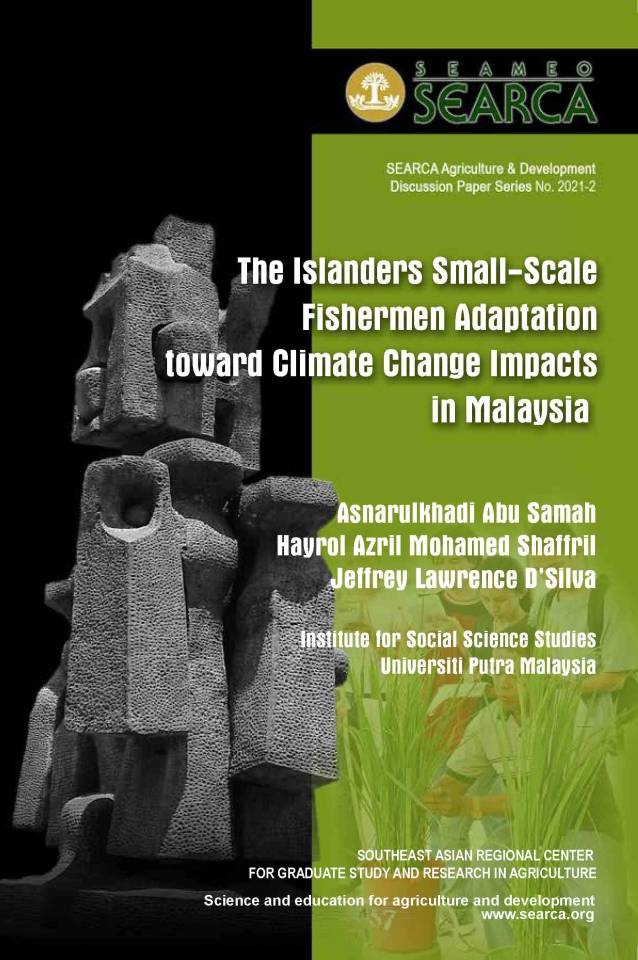SEARCA Publications
Historically, before the introduction of high-yielding rice varieties (HYV), the traditional rice varieties (TRV) were predominant in the Mekong Delta, Vietnam (MDV). The TRV-based farming system is environment-friendly and has been existing for hundreds of years—now, it has been proven to be sustainable under increasing climate change conditions. It is well adapted to extreme weather conditions, drought, alum, saline, and nutrient-poor soils.
The Southeast Asian Regional Center for Graduate Study and Research in Agriculture (SEARCA) together with the Regalo ng Kilit Foundation, Inc. convened the First International Conference on School-Plus-Home Garden cum Biodiversity Enhancement Enterprise (SHGBEE1) with the theme, “Restoring Biodiversity, Regenerating Agriculture, and Building Businesses.” Held on 8-12 November 2022 at Coron, Palawan, Philippines, SHGBEE1 provided a platform for sharing of experiences and best practices related to school and home gardens and its contributions to biodiversity enhancement and enterprise development in…
Community livelihoods within the Vietnamese Mekong Delta are at risk from droughts and saltwater intrusion. This study used the DFID sustainable livelihoods framework in a multi-disciplinary method to formulate a competent analysis and methodology for the evaluationof the sustainability, vulnerability, and adaptation of the coastal residents’ livelihood. A review of the local records coupled with a survey of community representatives from 120 households highlights the increase in temperature and rainfall frequency as well as the occurrence of drought and salinity…
The Vietnamese Mekong Delta (VMD) is one of the regions in the world that has been extremely vulnerable to climatic changes (Brown et al. 2018; Fujihara et al. 2015; Quang et al. 2012; T. A. Tran et al. 2020). Climate change has further complicated the occurrences of saline intrusion and drought in many aspects (Hoang et al. 2019; Jurjen et al. 2012; Mainuddin et al. 2010; Richard and Tran 2014; Thompson et al. 2013; D.D. Tran et al. 2020). Several…
The fisheries industry is one of the more weather-dependent human activities, and climate change, without a doubt, will bring negative impacts to this livelihood. The Department of Fisheries Malaysia (DOF 2017) has 130,645 registered fishermen in Malaysia, which shows the importance of this industry in providing persistent income to this group. In Malaysia, the islander small scale fishermen (ISFM ) group is known for its role in ensuring the continuous supply of protein in the community’s diet. Recent years have…
Climate change has brought enormous challenges to human lives, livelihoods, and the environment. Temperature increase, abnormal floods, and water pollution have negatively impacted on socioeconomic and agricultural systems in the Vietnamese Mekong delta. The aims of this study are to assess the readiness of traditional rice farming systems in the Vietnamese Mekong delta in adapting to climate change conditions and select traditional rice genetic materials for supporting breeding programs in the future. The research was conducted from April 2016 to…
Mainstreaming Urban Agriculture for Climate Change Adaptation in the Philippines: A Policy Guidebook
The Philippines is one of the most climate change-vulnerable countries. Sea level rise, water variability, rain-induced flooding, and landslides are among the observed impacts across municipalities and cities in the country. Cities and urbanizing areas, have been experiencing these impacts, making localized issues of poverty, food insecurity, unemployment, and conflicting land uses, more complex and challenging. Grounded in the reality that cities have competing land uses for the limited available space, policy makers should envision for sustainable spatial development taking…
In rural developing areas, women are considered as the main consumers of water—whether it be for cooking, drinking, washing, bathing, sanitation, or family hygiene at the local level (Aureli and Brelet 2004; Harris et al. 2017; Ivens 2008). Furthermore, a case study in Bangladesh indicated that women regularly use water for domestic purposes, farming, and other daily sustenance activities. As a result, women are likely to face a higher exposure to water-related pollution issues and waterborne diseases (UN Water 2006).…
Issues related to demand on deeper understanding on climate change adaptation ability, inadequate number of social studies, and the lack of studies on specific groups have prompted this study to assess the adaptation toward climate change among islanders small-scale fishermen (ISFM) in Malaysia. At the same time, it also intends to identify and rank order the aspect of adaptation abilities among ISFM in different areas/zones and to match the recommendation for the periodical remedial measure based on a different aspect of adaptation abilities. A…

